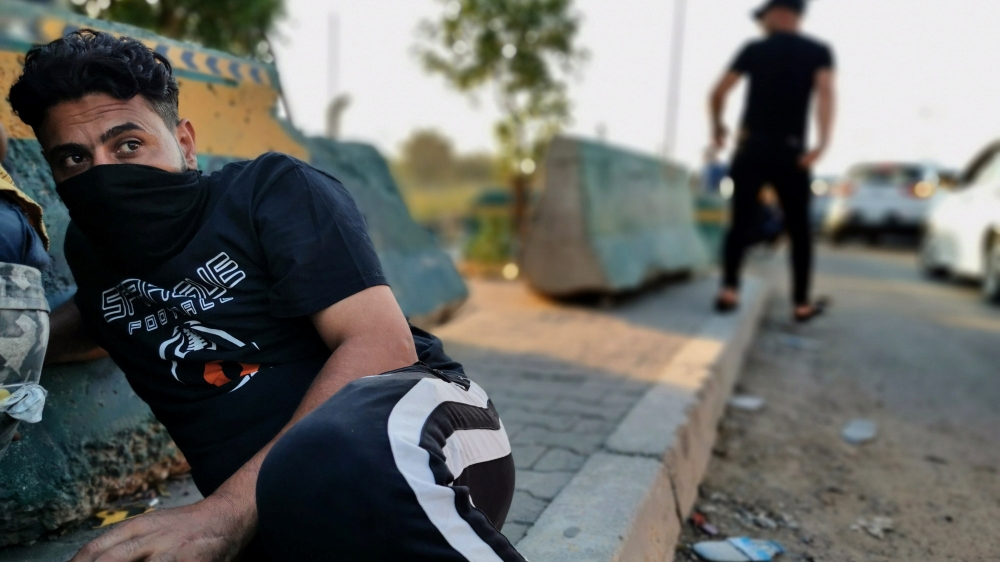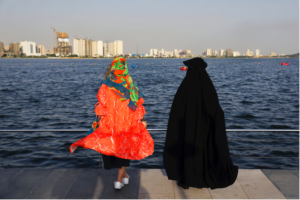
Photo courtesy of Thaier Al-Sudani/Reuters
This past July, in a move aimed at placating Washington’s concerns about growing Iranian influence, Iraqi Prime Minister Abdul-Mahdi issued a decree to fully integrate all Popular Mobilization Forces (PMF) within the Iraqi national forces by the end of the month. The PMF, which is trained and funded by the Islamic Revolutionary Guard Corps (IRGC), is Iran’s elite military force. Established in 2014 in response to the collapse of the Iraqi army and the rise of ISIS, many of the groups that compose the PMF have close ties with Iran and are considered threats to the U.S. and its interests. In February 2016, the Iraqi parliament signed off on a nearly identical decree ordering the PMF to integrate into Iraq’s armed forces, but this order was ignored. Once again, the PMF militias were faced with two alternatives, both of which are an anathema to Tehran: integrate into Iraq’s security forces or disarm and integrate into Iraqi society.
Most analysts have concluded that this directive will once again not be followed, because the PMF groups are too embedded within Iraqi society to amalgamate under the umbrella of the central government or dissipate. Others fear that by turning the PMF from an outlawed group of militias into an official state organ, Mahdi has legitimized their terrorist activities and control over vast swaths of Iraqi territory.
Utilizing nonstate, sectarian, Shia Islamist proxy groups abroad has become one of the primary tools of the Iranian regime for advancing its foreign policy objectives. Chiefly among them, are curbing American hegemony in the region and confronting Israel. However, Iran’s malign actions have mostly gone under the radar. Since 9/11, the United States and its allies have predominantly focused on combating Sunni extremist groups like ISIS, al-Qaeda, and the Taliban, with a few notable exceptions, such as Hezbollah and the Houthi insurgency in Yemen.
Meanwhile, Shia militant groups have been allowed to flourish in Iraq and Syria, without being subjected to the same level of scrutiny from the Western intelligence community and foreign policy establishment, even as they continue to inflict harm on U.S. personnel. According to the Pentagon, as of 2019, 603 US troops have been killed by proxies sponsored by the IRGC in Iraq, which means about one in every six American military casualties in Iraq are attributable to Tehran.
Part of the culpability for these fatalities falls upon the Iraqi government’s inability to control these groups and bring them under the purview of the state. Since the 2003 U.S. invasion of Iraq, the central government in Baghdad has been beset by instability. According to the Fragile States Index, Iraq has the 13th most unstable government in the world. As if this was not enough, Iraq’s already debilitated federal government has been hampered by the results of the 2018 Iraqi parliamentary election, which produced the most divided parliament since the 2003 invasion. It took five months following the elections for Adil Abdul-Mahdi to be selected as Prime Minister and form a governing coalition.
Mahdi has never been able to receive approval from the parliament on key appointments and was sworn in with only a partial cabinet in October of 2018. He was only chosen to be Prime Minister as a compromise between the Banaa bloc, led by Hadi al-Amiri, and the Islah bloc, led by Muqtada al-Sadr. During the opening parliamentary session, neither bloc was able to gather enough votes to become the majority in order to select the Prime Minister, so they compromised by selecting independent politician Abdul-Mahdi. The leaders of the two competing blocs, Amiri and Sadr’s unwillingness to compromise on ministry posts has rendered the Mahdi’s government feckless and unfit to tackle domestic problems. With some of the most critical cabinet positions still unfilled, the Prime Minister is under mounting pressure from both internal and external forces.
Additionally, while Mahdi’s government may seem less friendly to Tehran than his predecessor’s, he has not been fully extracted from the Iranian mullahs’ influence. Both al-Amiri and al-Sadr, who’s compromise enabled Mahdi’s premiership, either have had or currently maintain close ties with Iran. In fact, Amiri is the head of the Badr Organization, the military wing of the Supreme Islamic Iraqi Council (SIIC), which maintains very close ties with the IRGC. Amiri also has professed his love for Qassem Suleimani, the commander of the Quds Force, and is fluent in Farsi.
The intensely close bonds between the Iraqi government and the Iranian regime have hampered its ability to rein in the PMF militias. Four-month since the most recent order was issued, it appears that the Shi’ite militia commanders do not appear to intend to implement this directive. The Liwa al-Muntadhar militia has made headlines with its refusal to be integrated into the Iraqi security forces, despite American pressure on Prime Minister Mahdi.
Now, with US forces withdrawing from Kurdish controlled regions in Syria, it seems that Washington’s resolve to maintain its influence in the region is waning as well. The Barisha raid in Syria’s Idlib governorate, which successfully resulted in the death of Abu Bakr al-Baghdadi, the founder of the ISIS, will do little to buttress American credibility after the drawback. However, this month’s protests over the failures of the Iraqi political class to provide basic services, reduce unemployment, and root out corruption in Baghdad, Basra, and other Shiite-majority parts of southern Iraq revealed that Iranian influence might be declining as well.
Operating outside the preview of the state, Iranian militias have continued to use deadly force to suppress protestors, leaving 63 dead on Saturday, Oct. 26th. In response, two top commanders of Asa’ib Ahl al-Haq, an Iranian-sponsored PMF group, were pulled out of an ambulance and hanged by angry protesters, after the Asa’ib headquarters was set ablaze by an arsonist. The chief of As’aib, Qais al-Khazaali, later vowed to retaliate “many times over” against what he said was an Israeli-backed conspiracy. Additionally, 18 civilians were killed on Oct. 29th, when the PMF militia opened fire on protesters in the Shiite holy city of Karbala. Now Sadr is calling on Prime Minister Mahdi to announce early elections. Nevertheless, as the violence escalates and political volatility continues, Iran’s credibility among Iraq’s Shia majority will continue to erode, and the nature of the future relationship between Iraq and Iran remains uncertain.
Bobby Miller



